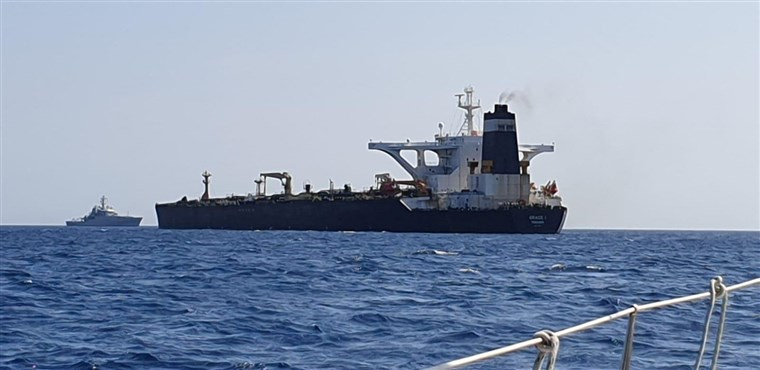Oil Piracy and the Contraction of England

It seems the British government has inserted itself in the growing US-Iran crisis in a fit of absence of mind. After self-paralyzing with the Brexit non-strategy inviting a new round of national security anxieties, the British political elite have seemingly found a palliative solution – in re-asserting their traditional dependence on American protective power and thus ripping the benefit of the “special bond” that was jolted a bit recently by the fleeting Trump-Macron ‘political romance’. But, the US-French cleavages dating back to De Gaulle have proved to be too resilient and, as a result, the Brits are now basking in the glory of being back in Uncle Sam’s bosom as Europe’s closest phalanx, nowadays dutifully re-enacting the surrogate role played in 2003 illegal invasion of Iraq.
Unfortunately, absent the existence of a world body to hold the British accomplices of the US invasion of Iraq responsible for their atrocities, it is hardly surprising that history is repeating itself and the British government is deliberately escalating tensions with Iran, calibrated to supplement America’s economic warfare against Iran. Thus, instead of standing up to Washington warmongers, British politicians have in fact echoed them, by plainly stating that they would side with their “US ally” in a war with Iran, backing words with action by dispatching military forces to the volatile region and parroting Washington’s accusations against Iran, e.g. with respect to the recent suspicious attacks on cargo ships in Gulf of Oman. Hence, their latest action, that is, seizing a Syria-bound oil tanker filled with Iranian oil for the desperate Syrian people, simply fits this unsavory pattern of behavior that more than anything else reflects the twilight of British power desperately rendering service to their American patrons as a gesture of their loyalty.
But, of course, the British oil piracy in high seas is bound to backfire and, already, has elicited the official complaints of both Iran and the government of Spain, which rejects the British claim of sovereignty over Gibraltar. As a result, London has willfully provoked a double crisis, raising tensions with Iran, which has vowed to retaliate by seizing a British tanker, as well as within the European Union, which has been undergoing a transition with the change of guards at the leadership level. The incoming EU High Representative, the Spanish socialist Joseph Borrel, known for his pro-Iran sentiments, is unlikely to take too kindly at London’s aggressive move against Iran’s oil, in light of the absence of any international ban on sale of Iranian oil. London’s lame excuse, that it has acted pursuant to EU’s ban on Syria, simply does not wash with anyone outside Washington and Tel Aviv and Riyadh, simply because everyone recognizes the changing realities of a post-conflict Syria and the legitimate need of the Syrian people for outside assistance, given the recent energy shortages in Syria.
Thus, the British government, which looked the other way and failed to prosecute the British ISIS fighters, who now pose a serious national security threat to it, has hatched a new conundrum for itself, i.e., on the one hand standing up to US on the nuclear deal and taking part in the new financial mechanism known as INSTEX to bypass US sanctions on Iran and, on the other, bandwagoning with US and its regional allies against Iran, thus putting itself at the crossroad of contradictory political impulses. Without doubt, Iran will not let this latest manifestation of British hostility to go unanswered and a tit-for-tat Iranian seizure of a British tanker in Persian Gulf is highly likely if London does not relent and reverse itself on its blatant oil piracy.

